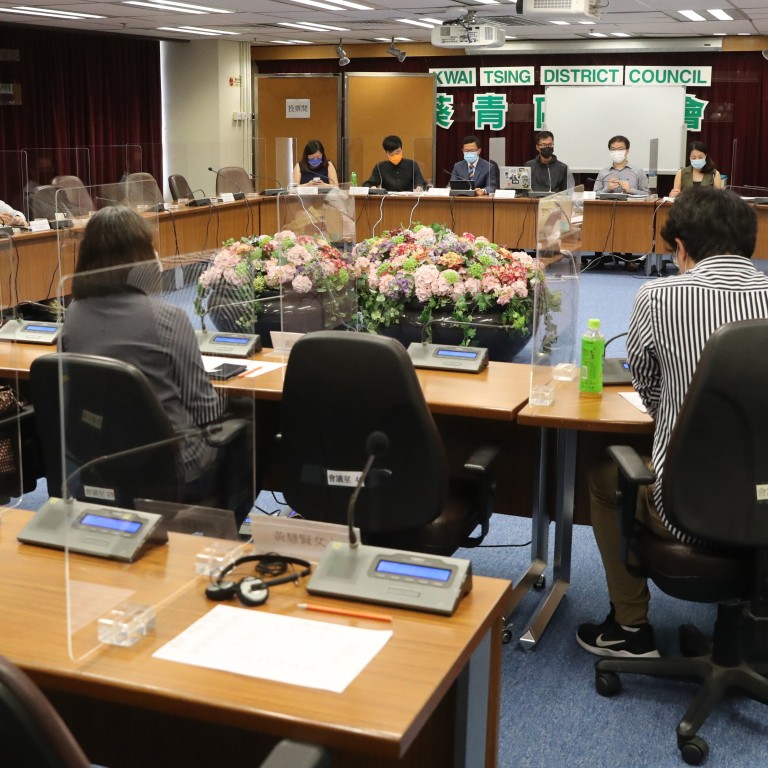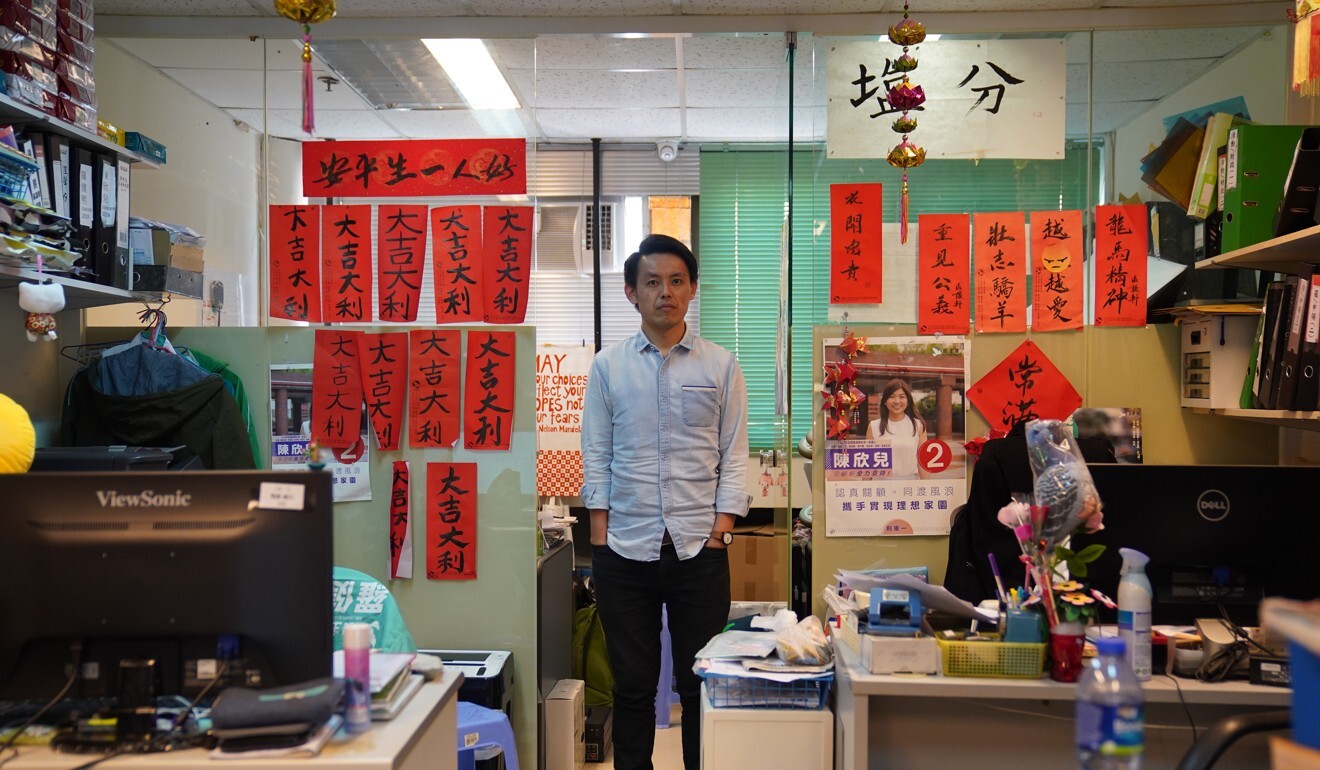
Explainer | Hong Kong’s district councils: with opposition members resigning in droves as oath looms, what happens next to these local bodies?
- Less than two years removed from a massive election victory, the opposition-dominated councils are being decimated by new rules and threatened pay grabs
- While more than 200 councillors have resigned in the past week, city leader Carrie Lam says ability of the bodies to function going forward not her concern
Here is what you need to know about the recent twist, and why district councils will not be the same going forward:
Authorities have weak legal case for demanding councillors return pay, but ‘tactic worked’
What are the functions and responsibilities of district councils?
Hong Kong’s 18 district councils are responsible for advising the government on matters affecting the well-being of local residents and the provision and use of public facilities and services in their areas.
They are provided with funds each year to implement minor local work projects and facilitate community involvement within their districts.
Of the 479 seats, 452 are directly elected by voters, with the remaining 27 taken up by rural committee chairmen in the New Territories as ex officio members.

What has triggered the mass resignation?
Under the new law, both negative and positive actions will be weighed in determining if public officers have failed to keep their oath. Committing “acts that undermine” Hong Kong’s interests, for instance, would fall into the negative category.
Some said if there is a mass disqualification, it will be very difficult for the district councils – which only have few members remaining – to function. But this is not our consideration
The bill’s introduction was widely seen as an attempt to pave the way for mass disqualification of the opposition district councillors who had swept to power.
They also warned that those disqualified could be required to return every dollar of salary and operating allowances received since taking office – as much as HK$2 million (US$257,500) per person.
While never publicly confirmed, the reports prompted at least 207 district councillors to pre-emptively resign for fear of potential bankruptcy.

What are the immediate consequences?
As of Thursday, 249 opposition district councillors had already resigned, accounting for more than half the 452 directly elected seats.
While the opposition camp took control of 17 of the city’s 18 councils in 2019, the latest wave of resignations has allowed pro-establishment figures to regain the upper hand in at least four districts: Kwun Tong, Kowloon City, Wan Chai and North.
Wong Tai Sin and Central and Western districts were the hardest hit by the departures, with each having only three councillors remaining.
“Some said if there is a mass disqualification, it will be very difficult for the district councils – which only have few members remaining – to function,” she said on Tuesday. “But this is not our consideration.”
No by-elections are planned to fill the empty seats.

What is the relationship between the government and the district councillors elected in 2019?
The relationship between the government and district councils quickly soured after the opposition camp took control and adopted a more confrontational approach towards officials who attended their meetings.
One of the turning points came in January, when Cheng Lai-king, chairwoman of the Central and Western District Council, grilled then police chief Chris Tang Ping-keung over alleged police brutality and evicted a plain-clothes officer who refused to show his warrant card.
Uncertainty ahead for district councils as arrests, mass resignations deplete opposition ranks
District officers from the administration said those topics and others addressed fell outside the councils’ proper function, arguing the city ordinance covering their existence tasked them with advising the government only on “matters affecting the well-being of the people in the district”.
But opposition members accused the officers of a double standard, saying previous, establishment-controlled councils had been allowed to discuss items such as electoral reform and passed motions in support of the government.
How will Beijing deal with district councils in the future, and what are the councillors’ plans?
But Beijing left district councils untouched, their future hanging in the balance.
There were suggestions the municipal bodies might be scrapped once and for all, or replaced by government-appointed area committees filled with pro-establishment politicians.
But opposition members said that even if Beijing left district councils alone, it would be very difficult for them to either run for office or exert their influence given the new oath-taking requirement, which stipulates that councillors face a five-year election ban if disqualified.
While a number of recently resigned opposition district councillors planned to quit politics altogether, the Democratic Party’s Lo Kin-hei, who stepped down last Sunday, said he intended to keep working in the community he had served since graduating almost 15 years ago.
More than 70 Hong Kong opposition district councillors quit ahead of coming cull
Formerly chairman of Southern District Council, Lo said he planned to keep working out of his office in Ap Lei Chau’s Lei Tung neighbourhood, using the salary he had saved up over the past 18 months to sustain his work in the community.
“Actually, I look forward to what can be done. Without this position, maybe there will be more variety to what we can do,” he said.
Sham Shui Po district councillor Ramon Yuen Hoi-man, also of the Democratic Party, said he did not intend to quit his post.
“I still believe that the government has a weak legal ground to claw back our money from Day 1,” he said. “If the administration decides to go with [that plan], we will have to see what the court has to say.”
Additional reporting by Sammy Heung

